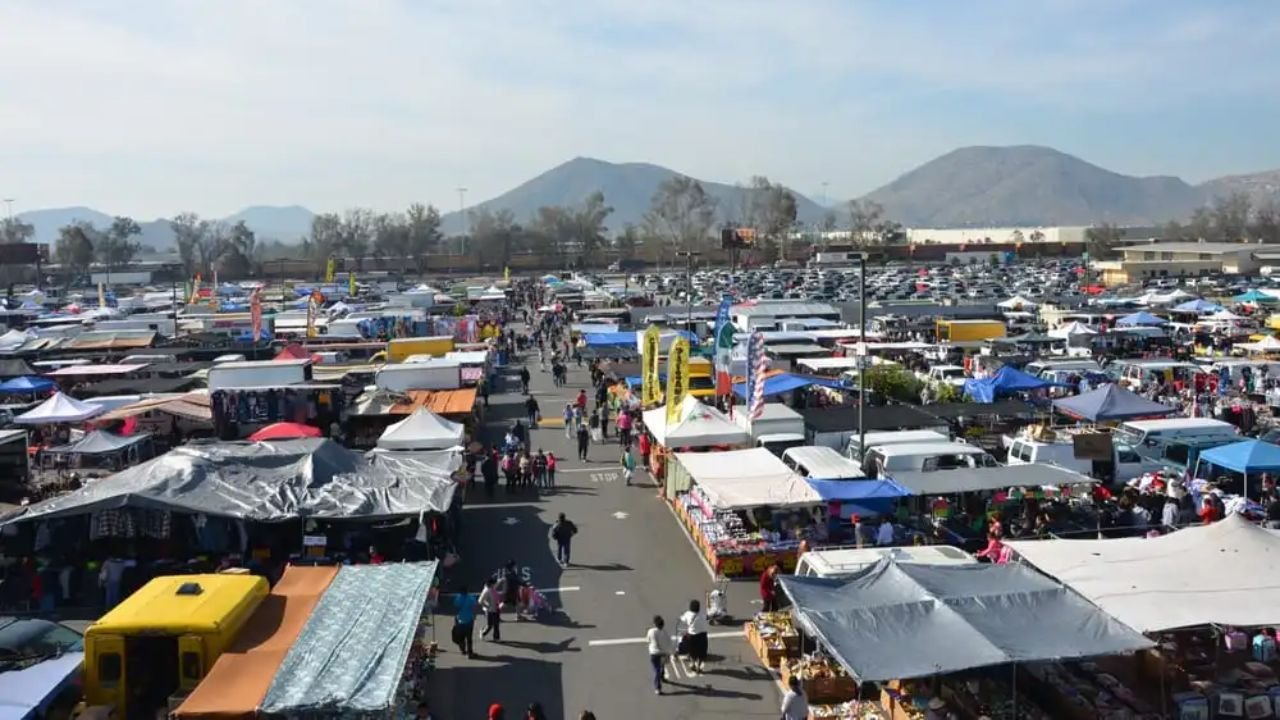Swap meets, also known as flea markets or trade fairs, are bustling hubs of commerce and community, drawing in vintage enthusiasts, bargain hunters, and collectors alike. These markets represent more than just a chance to shop—they embody a spirit of sustainability, creativity, and connection.
Whether you’re an experienced swap meet seller, a savvy buyer looking for unique treasures, or someone thinking of hosting your own event, this guide will help you explore everything you need to know about swap meets. From their rich history to tips for successfully navigating them, we’ll cover it all.
What Are Swap Meets?
Definition and Overview
A swap meet is a gathering where individuals come together to buy, sell, and trade goods, often featuring a wide array of items such as antiques, collectibles, vintage clothing, and handcrafted goods. These events often occur in open spaces, community centers, or online platforms and cater to people seeking unique finds or a platform for sharing their products.
Historical Background and Evolution
Swap meets have roots dating back centuries, evolving from traditional barter systems to modern markets. Historically, these gatherings allowed people to trade essential goods or handcrafted items within their communities. Over time, they adapted into organized markets that embraced cash transactions and broader commercial appeal. Today, swap meets thrive both offline and online, continuing their cultural tradition of exchange.
The Appeal and Popularity of Swap Meets
Swap meets have garnered popularity for several reasons:
- Hidden Treasures: The thrill of finding one-of-a-kind items.
- Affordability: Cost-effective shopping compared to traditional retail.
- Community Feel: Connections with like-minded individuals, sellers, and collectors.
Types of Swap Meets
General Swap Meets
General swap meets are versatile events that feature a wide variety of goods. From secondhand clothing to home goods and tools, these markets appeal to anyone who loves a good bargain.
Thematic Swap Meets
These events specialize in a particular category, such as:
- Car Swap Meets: Perfect for car enthusiasts seeking auto parts or classic car accessories.
- Antique Fairs: Featuring rare, vintage, or collectible items.
- Craft Markets: Showcasing handmade and artisanal creations.
Online vs. Offline Swap Meets
- Offline Swap Meets: Traditional in-person events allow attendees to browse, touch, and even haggle over items.
- Online Swap Meets: Websites and marketplaces like eBay or Facebook Marketplace have created virtual swap meets accessible worldwide, giving buyers and sellers the flexibility to connect remotely.
How to Plan and Host a Swap Meet
Organizing a swap meet is a rewarding way to foster community connections while offering a platform for trade. Here’s how to start planning your own successful event.
Choosing a Location and Date
Select a space that is easily accessible and spacious enough to accommodate booths and visitors. Popular choices include public parks, community centers, or empty parking lots. Pick a weekend or holiday to maximize attendance.
Organizing Vendors and Participants
- Spread the word early to attract a diverse range of vendors.
- Create a straightforward application process for stall reservations, specifying fees or requirements.
- Categorize vendors to ensure variety across booths.
Promotion and Advertising Strategies
- Use social media platforms for event promotion with eye-catching visuals.
- Distribute flyers within the community to reach local audiences.
- Partner with local businesses for cross-promotion, boosting awareness.
Logistics and Setup on the Day of the Event
- Arrange booths, walkways, and rest areas for smooth traffic flow.
- Provide tables, chairs, and canopies for vendors as needed.
- Set up clearly visible signs and maps to guide attendees.
Tips for Successful Buying and Selling
Whether you’re a buyer on the hunt for something special or a seller trying to make the most profit, these tips will ensure a rewarding experience.
Strategies for Buyers
- Arrive Early: The best deals and unique items are usually snapped up quickly.
- Bring Cash: Many vendors prefer cash payments, and it helps with bargaining.
- Inspect Items Closely: Check for damages or missing parts before purchasing.
- Negotiate Respectfully: Polite haggling is part of the fun but avoid unfair offers.
Strategies for Sellers
- Presentation Matters: Display your goods attractively to catch buyers’ eyes.
- Set Competitive Prices: Research similar items to price your goods fairly.
- Engage with Shoppers: Friendly interaction can boost your sales.
- Be Open to Bargaining: Agreeing to reasonable discounts can lead to faster sales.
Benefits of Attending Swap Meets
Cost Savings and Bargains
Swap meets offer opportunities for finding high-quality items at significantly lower prices than traditional stores.
Community Building and Networking
These markets foster local connections and provide a space for like-minded individuals to bond over shared interests.
Environmental Benefits
By encouraging the reuse and redistribution of goods, swap meets significantly reduce waste and promote sustainable consumption.
Popular Items at Swap Meets
Common Categories of Items Found
- Vintage Clothing
- Collectibles and Antiques
- Handmade Crafts
- Automotive Parts
- Records and Books
Trends and Seasonal Variations
Expect certain items to dominate based on seasons—light clothing in summer, holiday decorations during the festive season, or garden tools in spring.
Swap Meet Etiquette and Best Practices
Behavior Guidelines
- Treat vendors and other participants with respect.
- Follow rules or guidelines established by the organizers.
Safety and Security Tips
- Keep personal belongings like wallets and phones secure.
- Avoid large sums of cash—bring small bills to make it easier to buy or bargain.
Maintaining Fairness and Community Spirit
Ensure transactions are honest and fair to uphold the value of the community experience. Positive interactions are key to ensuring everyone leaves satisfied.
You May Also Like: Babyyli – The Smart Parenting & Sustainable Baby Products Guide
Conclusion
Swap meets are more than shopping events—they’re a celebration of community, creativity, and sustainability. They bring people together in shared spaces, offering great finds, meaningful connections, and an eco-friendly approach to consumption.
Whether you’re buying, selling, or organizing, swap meets are a win for everyone involved.
FAQs
What is a swap meet?
A swap meet is a marketplace where individuals buy, sell, or trade goods, ranging from antiques and collectibles to handmade items.
How do I host a swap meet?
To host one, find a suitable location, organize vendors, promote the event through social media and community outreach, and manage setup on the day.
Are all swap meets in-person?
No, many swap meets also occur online through platforms like eBay or Facebook Marketplace, connecting buyers and sellers remotely.
What should I bring to a swap meet as a buyer?
Bring cash (preferably small bills), reusable bags, and a notebook to jot down booth numbers or deals.
Can I negotiate prices at a swap meet?
Yes! Negotiation is a common and enjoyable part of the swap meet experience.










